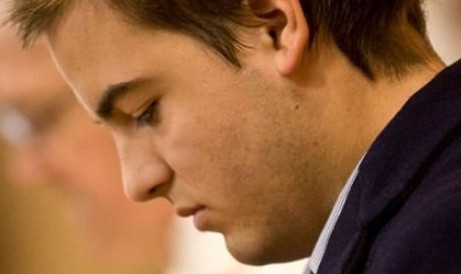Brother Dennis of the Little Brothers of Mary, as they were originally known, was buried at a cemetery near Melbourne in March, 1992. His two families — the one he grew up with, and the clergy that he made his adult life with — were both present, and separate.
The coffin lowered, the mourners were about to disperse for the after-match chat at the school, Assumption College, Kilmore, where he had lived and taught. But first his second family — the men in black, the Marist Brothers – gathered close by the head of the grave and sang James Wright up to his God. Perhaps, too, they sang for the loss of one of their own. They were so apart from us, his flesh and blood. A separate family and a separate world.
If the Catholic Church had knights who represented its best and highest ideals, then Jim was one of them. In the last years of his life, he bore the motor neurone disease he was stricken with as a test of his faith that he was determined to pass. Like his younger brother, my father, Jim was convinced that death would bring him to the mother they had lost before they were three years old.
He had a chiselled face, blue eyes and a droll monotone of a voice. A friend who taught with him at a Catholic school in Melbourne’s eastern suburbs described him as “a bit of a spunk”. His sole vice was smoking; the cigarette rested on the second knuckle of his middle finger, held in place by the arch of the index finger. Somehow it rendered no nicotine stains.
He was as tough as flint; less so, possibly, as a dormitory master at boarding schools from Sale to Adelaide to Bunbury, but more in what he expected of himself and how that was transmitted to those around him. It was family lore that his footballing talent in the mid-1950s had been sufficient to bring him to the attention of Jim Cardwell, the secretary of the then all-conquering Melbourne club of the Victorian Football League. Decades later, a columnist for the-then Melbourne Sun filled in some of the blanks for me. He had played footy with Jim as a schoolboy in Sale. The boys were playing against men, but they always walked taller and played more confidently when Jim was there. Most successful teams at any level had a least one guy like this on their team — the enforcer. Continue reading
Sources
